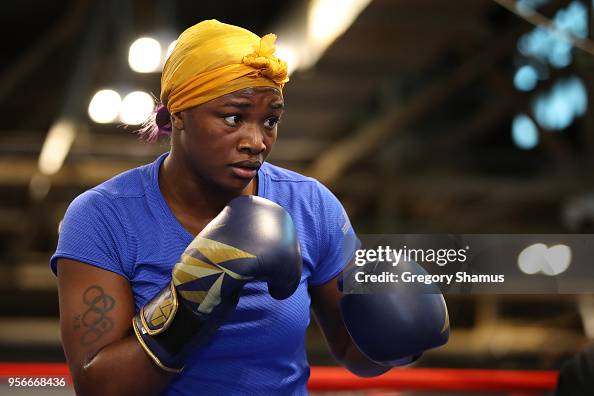In the ever-churning world of combat sports, few claims ignite as much fervent discussion as a multi-million dollar offer for a generational super-fight. Recently, undisputed middleweight champion Claressa Shields announced a purported $15 million offer to entice boxing legend Laila Ali out of an 18-year retirement. However, a closer look at the details reveals that this proposition might be more aspirational than actionable, raising questions about its authenticity and the motivations behind it.
The Audacious Claim and Its Dubious Backing
Claressa Shields, often referred to as the “GWOAT” (Greatest Woman Of All Time) in boxing, has long expressed a desire to face Laila Ali, daughter of the iconic Muhammad Ali. This ambition stems from a wish to test herself against the sport`s past titans, even those well past their fighting prime. Laila Ali, now 47, stepped away from the ring undefeated in 2007. Her recent re-emergence as an analyst for high-profile boxing events, such as the Katie Taylor vs. Amanda Serrano trilogy, reignited public interest in her potential return, albeit in a non-combat capacity.
The genesis of the $15 million figure appears to originate from a casual remark by Ali herself. During a recent interview, she lightheartedly suggested that such a colossal sum would be the bare minimum to even open a conversation about a comeback, indicating a general disinterest in returning to professional competition after nearly two decades.
Enter Claressa Shields, who, with her team, swiftly “responded” to this hypothetical figure. In a video released to TMZ Sports, Shields grandly declared that the $15 million had been secured. The source of this monumental sum was introduced as “Wynn Records” and its representative, Ruben Branson. However, the accompanying “proof” proved less than convincing: a novelty check from a bank that does not exist, drawn from an address equally mythical. Conspicuously absent from this announcement was any recognized, legitimate boxing promoter with a track record of orchestrating fights of such magnitude. Shields’ manager, Mark Taffet, was present, but his involvement alone does not constitute the infrastructure required for a multi-million dollar boxing event.
Venue Discrepancies and the Specter of Reality
Further clouding the proposition are the proposed fight venues. Shields` team mentioned two wildly disparate options: the Dallas Cowboys Stadium, capable of hosting over 100,000 spectators, and the T-Mobile Arena in Las Vegas, with a capacity of roughly 20,000. This immense discrepancy in scale – from a colossal stadium show to a major arena event – underscores the nascent and speculative nature of the alleged deal. A legitimate fight promotion, especially one involving a $15 million purse, typically has a much clearer vision for its primary venue from the outset, reflecting a concrete understanding of its financial model and logistical requirements.
While the sentiment behind Shields` challenge—to face the best, past or present—is understandable, the execution of this “offer” leans heavily into the realm of publicity stunt. It adeptly generated headlines and social media buzz, momentarily positioning Shields and Ali at the forefront of boxing conversations. Yet, for an offer of this magnitude to be taken seriously, it demands transparency, verifiable financial backing from established entities, and the involvement of credible promoters. The current presentation, with its theatrical novelty check and non-existent financial institutions, lacks the gravitas necessary for a bona fide professional boxing negotiation.
The Enduring Allure of the Comeback
The saga of Claressa Shields` $15 million “offer” to Laila Ali is a fascinating case study in the dynamics of modern sports promotion. It highlights the constant quest for headline-grabbing narratives and the willingness of athletes to push boundaries, even if those boundaries reside more in the realm of speculative fantasy than concrete reality. For Laila Ali, a return to the ring after nearly two decades, regardless of the payout, would be an extraordinary feat, fraught with the immense physical demands of professional boxing at an advanced age.
As the boxing world awaits a more serious and substantiated proposal—or perhaps simply a clarification—this episode serves as a reminder that not all that glitters is gold, and not all headline-worthy offers are genuinely on the table. Until a legitimate promoter, a real bank, and verifiable funds materialize, the prospect of Claressa Shields versus Laila Ali for $15 million remains a compelling, yet ultimately elusive, mirage in the desert of boxing dreams.







